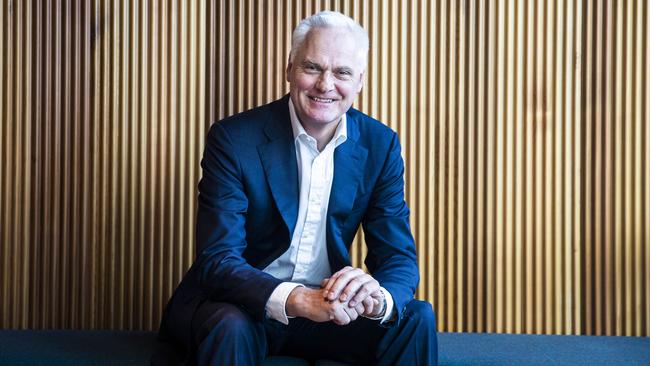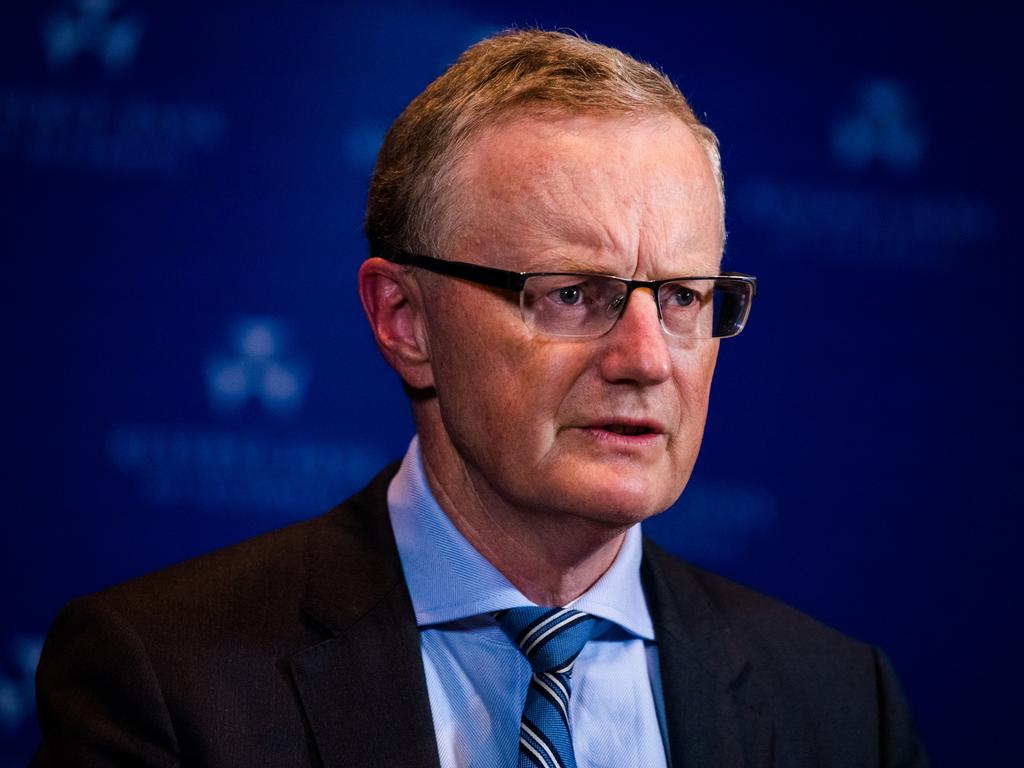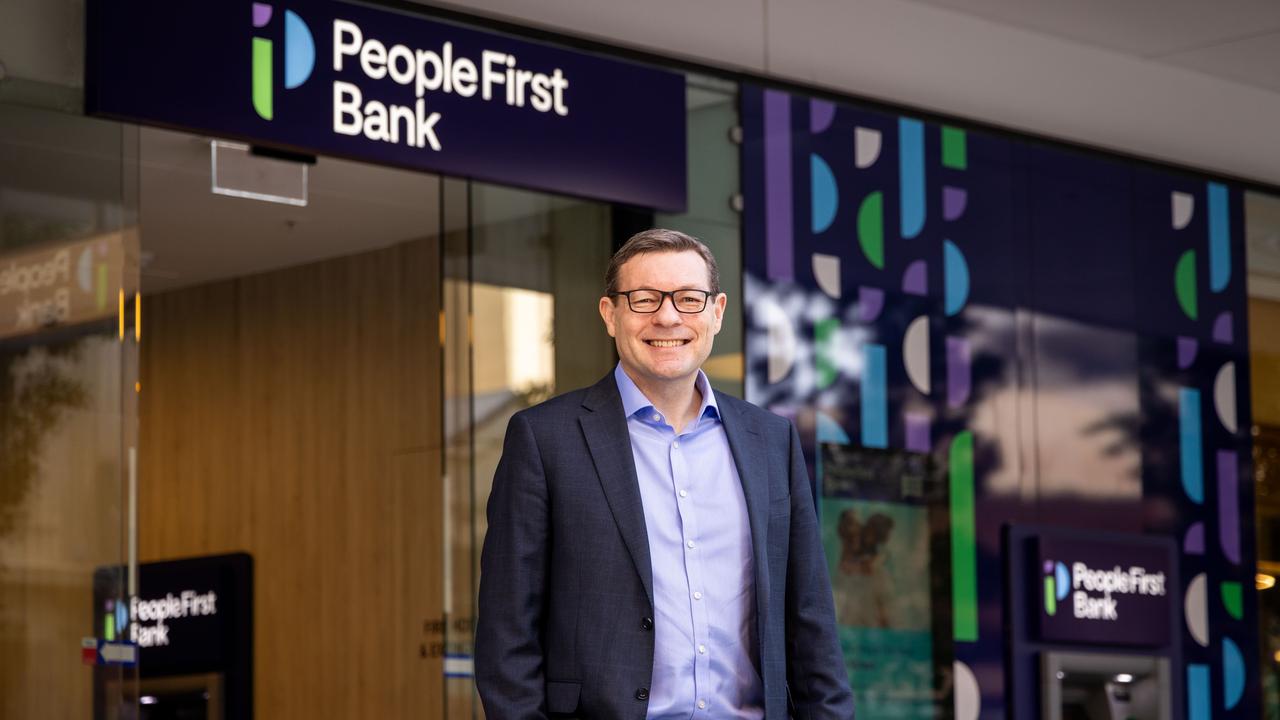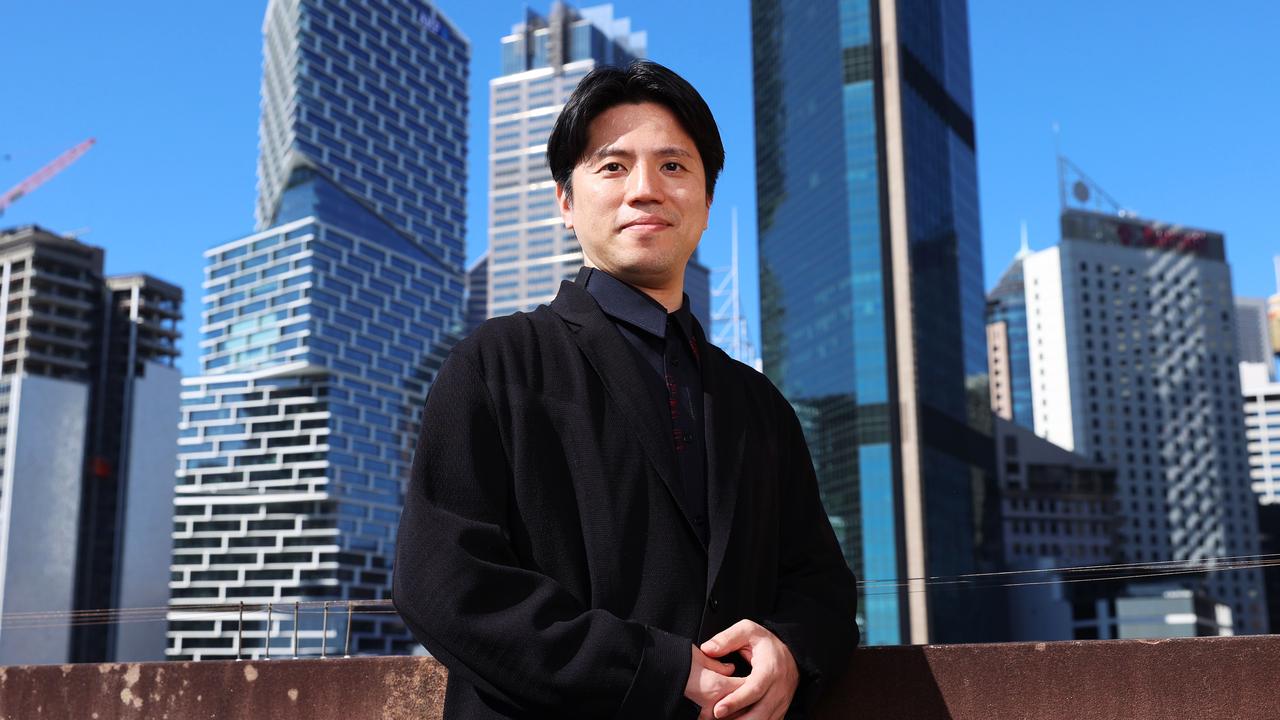Covid fallout ‘to strand’ second-tier offices
Cbus CEO Justin Arter said he was nervous about current global sharemarket valuations among other Covid outcomes.

The chief executive of one of the nation’s biggest industry superannuation funds believes the fallout from the Covid pandemic will leave owners of second-tier CBD office properties caught with “stranded” assets and has expressed his nervousness about the current lofty valuations of global sharemarkets, warning the double-digit returns of the past year are unlikely to be repeated.
Cbus Super, the $61bn super fund for the construction and building sector, this month reported the best annual fund performance in its 37-year history, announcing a 19.34 per cent return for its growth option last financial year as it successfully navigated pandemic volatility.
But Cbus CEO Justin Arter said he was nervous about current global sharemarket valuations, adding that he did not expect Cbus to replicate the same performance in the year ahead.
“I think I can confidently stand here and say we will not do that again this year. Nineteen per cent is unlikely to happen again,” he told a private dinner forum in Melbourne hosted by Hamilton Wealth Partners.
“We would be thinking somewhere around 7 per cent, in the region of our long-term expected returns. That would be a good outcome in the environment we are confronting – navigating to a new post-Covid normal, heightened health, economic, policy and market uncertainty.
“We believe the easy market gains from the Covid lows are behind us. In the last few weeks we have taken significant downside protection against markets and we can move this in and out – we have therefore added some modest downside protection to the portfolio. I could be standing here in a few weeks time and that would be gone. But we are pretty wary about that.
“We are closely watching credit, too. We think credit at the moment is very stretched. There were good returns a while back when the market was dislocated in Covid. That opportunity has long since gone and we remain very selective.”
In his address, Mr Arter, a former managing director of Goldman Sachs and senior executive at BlackRock, the world’s largest asset manager, said most of the current bias in Cbus’s equity portfolio was, unsurprisingly, towards the US.
“We don’t see that changing any time soon. Yes, there will be more regulation of the tech giants, but that doesn’t change the thesis,’’ he said. “China we are pretty worried about … That is not a market we are playing in.”
Mr Arter said the fund had increased its exposure to active managers in preference to passive. “We think now there will be significant dislocations in the markets allowing active managers to shine,” he said.
“Alpha is there to be got.’’
Mr Arter said he had been surprised about the ongoing strength of the luxury CBD apartment market, where in Sydney some properties were selling for more than $100,000 per square metre.
Cbus Property and retail landlord Scentre Group have enjoyed strong apartment sales from their $300m luxury retail, office and residential development of the former David Jones menswear store in the Sydney CBD.
Lending from Cbus resulted in the construction of 862 new residential units last financial year, while Cbus Property released 471 apartments to the market over the same period.
But Mr Arter said Cbus, also a direct CBD office investor and developer, was expecting to see a lot of stranded office assets in the nation’s cities in the years ahead.
“It is a statement of the obvious to say people will not need as much CBD office real estate as they did in the past,” he said.
“What is equally clear is you are going to see a lot of stranded assets. If you are sitting on premium or A grade, you are OK. You can still sell. You are probably not going to get the price you once did. But if you are anywhere down in B and C and back in the day you could consider changing it around to some sort of residential accommodation, that has all gone.
“So you are sitting on a stranded asset and you can’t demolish it because there is no demand for a new premium building. There is only demand for the premium buildings that exist. If you are caught at the bottom of that property rung, you are in strife.’’
While he stressed Cbus had a sound CBD office portfolio with a large book of government tenants, he said it was likely corporations would only need 60 per cent of their current levels of office accommodation because of the working-from-home phenomenon induced by Covid.
“So we are going to see a very significant unfolding of this market in the next four to five years,” he said. “We haven’t seen it play out yet because here we are unfortunately seeing more lockdowns. So people don’t know where they are at the moment. But most corporates unanimously agree they will not need the space they did in the past.’’
US Federal Reserve chairman Jerome Powell said last week that the American economy needed to improve further before the central bank would change its ultra-easy monetary policy settings.
On the vexed issue of inflation, Mr Powell restated the Fed’s position that the current surge was temporary and would be offset as conditions returned to normal.
He said much of the current price pressures were in sectors like automotive, which were sensitive to temporary conditions.
Mr Arter said the key to inflation was wage pressure, a point also made by Mr Powell.
“Until such time as we see substantial wage pressures in the market, we believe inflation will remain comparatively benign,” Mr Arter said.
“There are pockets of significant labour shortage, especially in professional services. And money that would have been spent externally with travel is also being captured in the Australian economy and that is presenting as inflation in sectors like consumables.’’
However, while he believed a “blip up and then back down” thesis on inflation would play out, Mr Arter said he remained wary.
“If we do see that become more persistent, then we are going to a tightening of monetary policy,” he said. “With risk asset prices and credit where it is, that is not a good movie to be involved in because within two to three months, you can undo a couple of years of good returns in really quick time.”
But he added: “We don’t see interest rates going up to 6-7 per cent for a very long time.”
Mr Arter also dismissed claims super funds had any “woke” agenda in taking activist positions against underperforming companies and their boards.
“Capital allocation is what we are about,” he said.
“When we see groups or boards behave in a way that might damage shareholder value – AMP being the classic case in point, unfortunately – we act.
“And it is not based on a particular ideology or woke agenda, it is based on the fact we see equity value destruction. That is why we engaged with Rio Tinto. While the [Juukan Gorge] cave destruction was not material in an earnings sense, in a reputational sense it certainly was.
“But I must put it on the public record that Rio have been exceptional in engaging with shareholders since, trying to mend the error of their ways. Since the change in management, they have been exceptional. They have shown a clean pair of heels to investors.”
The recent move by a consortium of super investors, including IFM Investors and QSuper, to make a $22bn takeover bid for the listed Sydney Airport has led to questions whether activist super funds will push more companies private.
Some commentators have even suggested big super’s activism might help push undervalued fossil fuel companies to delist and leave private equity players with the upside profits.
But Mr Arter said Cbus was neutral on the privatisation issue.
“The proposition is fine. If we see value in taking a company – particularly one that is in distress – private, we will look at it. If we don’t, we won’t. But we prize liquidity,” he said.
“Sydney Airport is an asset that is run very well. We aren’t looking at an asset that is loose or fat or needs improvement.
Yes, we know about Covid and the share price impact. But to think that is the classic LBO candidate, that thesis doesn’t work. It is effectively a long-duration bond.”





